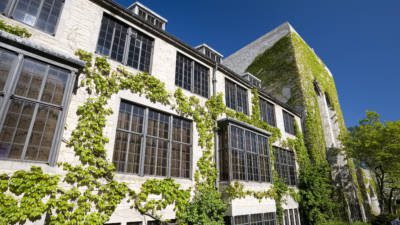As you build out your college list, consider the academic and community benefits of Historically Black Colleges and Universities (HBCUs).
With over 100 across the country, HBCUs meet a variety of needs and interests, no matter what kind of college experience you’re looking for. HBCUs got their start in the early 19th century due to academic segregation. Today, the schools serve students from wide-ranging cultural backgrounds in a racially diverse academic setting.
Here, students and professors share their thoughts on why attending an HBCU can be such a valuable experience, both in school and after graduation.
Diverse and Welcoming Student Body
HBCU campuses are rich with diversity. Rion Amilcar Scott, who attended Howard University and taught English and modern languages at Bowie State University, explains: “One of the major criticisms of HBCUs from people who know nothing about them is that they’re homogenous.” During his time at Howard University, he learned how diverse and varied the school is. “I met people with wildly diverging perspectives, class backgrounds, interests, experiences, and ideologies.”
Chantel Johnson, a North Carolina Central University alum, points to the diversity at her HBCU as a key factor that makes it so welcoming. “What I value the most about Central is the underlying core of empathy, understanding, and diversity the school gives to students. The campus includes all nationalities, without excluding or alienating anyone.”
Early on, when I first started looking into HBCUs, I was often told that the experience is something you could never get anywhere else. It’s very much true.”
Imani Simmons
Supportive Campus Environment
Minority students attending HBCUs have increased levels of meaningful interactions with faculty and mentors, greater involvement with faculty research projects, and more engagement in career development activities. They’re also 13-15% more likely to graduate than minority students enrolled at predominantly white institutions (PWIs).
One reason may be because at HBCUs, resources for students—from study groups to tutoring services—are more accessible. HBCUs have a history of providing a greater wealth of services than at PWIs. For example, 50% of HBCUs use professional tutors to staff their writing centers, compared with less than 10% of PWIs, which rely predominantly on undergraduate student tutors.
Imani Simmons details her experience at Howard University: “While engaged in very challenging work, I find that the tutoring center is the most valuable resource for me. Once I discovered I could go to the tutoring center as much as I needed, I’ve basically lived there. The tutors take the time not only to teach me, but also to learn about who I am as a person.”
Scott adds that the supportive environment isn’t simply about access to resources: “It’s a liberating experience, intellectually and otherwise, to be in a place where your humanity is taken as a matter of fact. For many students, this can lead to more substantive discussions and deeper self-discovery.”
Unique Learning Experience
HBCUs are routinely credited with providing an on-campus learning experience that simply can’t be replicated at PWIs. “HBCUs are not without their faults and suffer from the same problems that are currently plaguing all of higher education,” Scott says, “but what they offer is unique in American education.”
Simmons agrees. “Early on, when I first started looking into HBCUs, I was often told that the experience is something you could never get anywhere else. It’s very much true.”
For Johnson, the student life at Central is proving to be the most enriching part of her time at an HBCU. “The organizations and clubs at Central give students a voice and a platform to express issues that resonate with us.” There’s also a pointed effort to set up students for success after graduation. “The school brings speakers and experienced professionals to give an in-depth look into careers we may be interested in,” she explains.
Greater accessibility to resources and a stronger connection with faculty and staff might be why some studies have found that 55% of HBCU graduates feel prepared for life beyond graduation, compared to only 29% of minority graduates from other colleges.
Another factor might be HBCUs’ robust alumni networks. Dr. Kwame M. Brown, a former assistant professor of psychology at Hampton University and a Hampton alumnus, says, “Our alumni networks are second to none. We have tons of alumni who want to give back and help students.”
HBCUs may not be the right choice for everyone, but they can provide uniquely enriching academic and community experiences. As you consider your degree and career goals, take note of all HBCUs have to offer and why they might deserve a spot on your college list.




